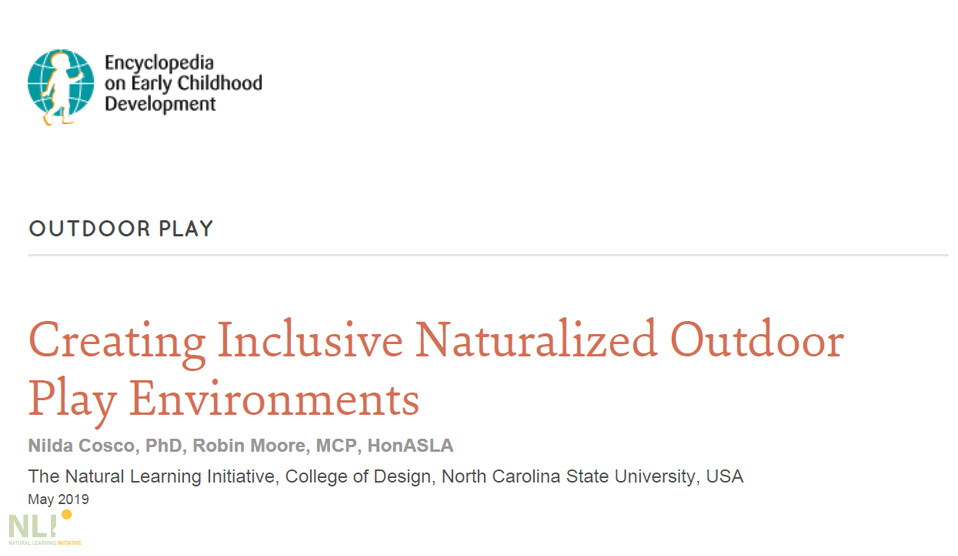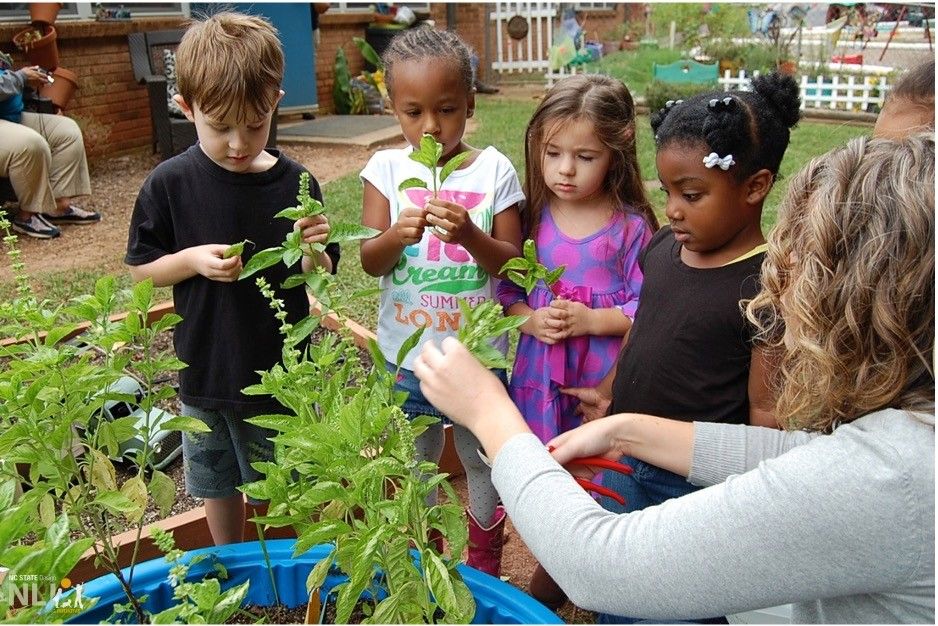Publications
Creating Inclusive Naturalized Outdoor Play Environments
Authors: Cosco, Nilda & Moore, Robin
Introduction
Outdoor play in naturalized environments has a positive impact on children’s development and physical health, including children with disabilities. Exposure to nature may strengthen the immune system help decrease attention deficit disorder symptoms; and assist all children to improve well-being. These findings suggest a strong link between inclusion and biophilia (the innate human tendency to have positive feelings towards nature), recognizing that all life forms are part of the Earth’s ecosystem.
Biodiversity and allergies. Contact with a variety of living organisms from all sources of nature (plants, animals, insects, bacteria) is associated with the balance of microbiota (bacterial cells living in the body) boosting the immune system that may reduce allergies. Contact with environments rich in microorganisms in childhood reduces the risk of developing allergies later in life.
Note of caution: Parents and caregivers should evaluate if children with disabilities with weak immune systems can interact freely with these types of environments. The issue of toxic and allergy-triggering properties of plants must be carefully considered.


